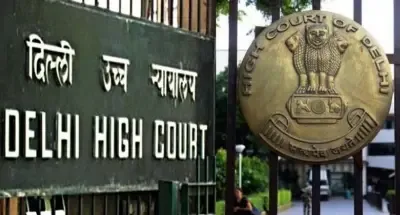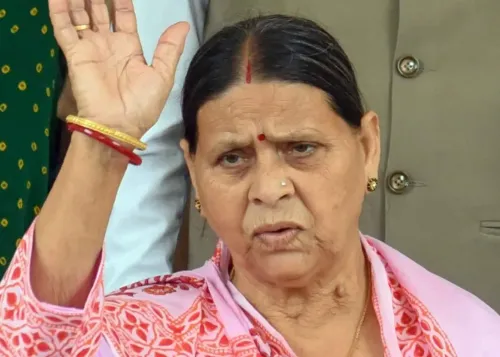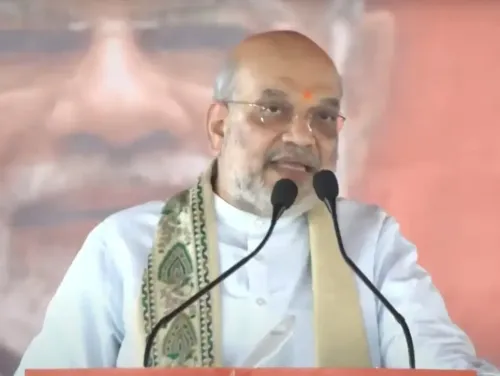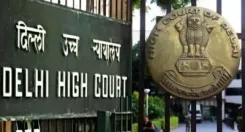Is India Ready to Build Its First Polar Research Vessel?
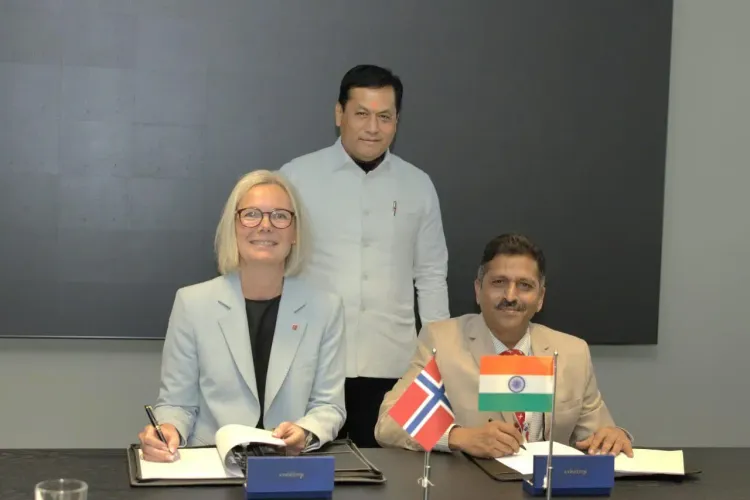
Synopsis
Key Takeaways
- GRSE and Kongsberg partnership: A historic MoU for indigenous PRV construction.
- Scientific advancements: The vessel will enhance research in polar regions.
- Climate change focus: Equipped to study marine ecosystems and climate issues.
- Economic growth: Supports India's 'Make In India' initiative.
- Investment opportunities: Encourages Norwegian shipowners to invest in India.
Oslo, June 3 (NationPress) The Kolkata-based Garden Reach Shipbuilders and Engineers Limited has entered into a partnership with Norway's Kongsberg by signing a Memorandum of Understanding (MoU) to facilitate the indigenous construction of India's inaugural Polar Research Vessel (PRV).
This MoU signifies a pivotal advancement for India's shipbuilding industry, as it will incorporate design expertise for creating the PRV, tailored to the needs of the National Centre for Polar and Ocean Research (NCOPR), which will utilize the vessel for research endeavors in polar and southern oceanic areas.
With a reputation for constructing complex maritime platforms such as warships and research vessels, Garden Reach Shipbuilders and Engineers Limited (GRSE) will manufacture this PRV at its facility in Kolkata, thereby supporting the 'Make In India' initiative.
The event was attended by India’s Minister of Ports & Shipping, Sarbananda Sonowal, along with Kongsberg leadership, GRSE officials, and senior government representatives from both Norway and India.
During the occasion, Sonowal remarked, "Under the guidance of Prime Minister Narendra Modi, this MoU signifies our commitment to fostering scientific exploration, enhancing India’s capabilities in polar and ocean research, and contributing to global efforts in addressing critical issues like climate change. The vessel will be outfitted with cutting-edge scientific instruments, allowing our researchers to delve into oceanic depths, examine marine ecosystems, and uncover new insights into our planet's history, present, and future."
Sonowal also represented India at a high-level ministerial discussion on the 'Role of Shipping in Shaping the Future'. The conference underscored the necessity for the industry to work towards a stable, long-term regulatory framework that promotes inclusive and decarbonized ocean-based trade. Ministers from Brazil, Japan, the US, China, Norway, and UN officials participated in the meeting.
While addressing the attendees, Sonowal stated, "Prime Minister Narendra Modi has articulated India’s vision of 'Growth for All', expressed as SAGAR (Security and Growth for All in the Region). This vision aims to harness India's extensive coastline, strategic positioning, and maritime legacy to drive economic growth, enhance regional security, and ensure sustainable development for all stakeholders. Building upon the SAGAR initiative, PM Modi has introduced MAHASAGAR — which stands for Mutual and Holistic Advancement for Security Across the Regions, indicating a more consolidated and expansive approach to comprehensive maritime engagement and growth."
Sonowal also encouraged Norwegian shipowners to invest in India’s expanding maritime sector during a roundtable with the Norwegian Shipowners’ Association (NSA).
During the discussion, he highlighted crucial areas for India-Norway maritime cooperation, noting that Indian shipyards currently account for 11 percent of the NSA’s order book. He urged for an increase in orders, taking advantage of India’s ship-breaking credit note scheme.
Highlighting India’s robust maritime workforce, ranked second in the NSA’s global fleet, he called for broader recruitment partnerships. He also emphasized significant investment opportunities available under India’s flagship Sagarmala program and the $2.9 billion Maritime Development Fund, which offers incentives across shipbuilding, ports, and logistics.

